As part of the One Day, One Struggle, a global campaign by members of the Coalition of Sexual & Bodily Rights in Muslim Societies (CSBR), Drag It to the Top in Pakistan, organized a focused group discussion on indigenous responses to homonationalism in Pakistan and Sweden and exploring the importance of politics of feminist transnational solidarity in the wake of cultural wars on human rights by terrorist groups ISIL and Al-Qaeda and the resulting threat of Islamophobia against queer Muslims living in war-torn areas and the explosion in refugee populations migrating to the West for asylum.
The discussion was held at Lahore’s Books n Beans café, a highly popular and cordial environment for activists and intellectuals to get together and share issues of common interest over coffee and a diverse range of affordably priced books.
There were 15 people in attendance including Pakistani representatives of esteemed academic institutions, multinational
corporations, art and history collectives and not-for-profit organizations in Lahore that were joined by academic researchers from Sweden. The format of the discussion involved sensitization on local and standardized terms on queer sexuality which was then extended to understand the implications of homonationalism in the Indo-Pak Sub-Continent as well as internationally.
It was no surprise to see the debate kicking off with the question “how is homonationalism relevant to Pakistan? You have to have a state-sanctioned movement for LGBT rights and it doesn’t apply to our context so far,” says Hadi Hussain, a lecturer of psychology at the Department of Gender Studies at Punjab University, Lahore. Hadi was one of the first Pakistani academic to write a retaliatory feature in the media condemning the US embassy Pride celebrations held in Islamabad in 2010.
Sharing his initial responses to homonationalism, Abdullah Qureshi, arts consultant for the British Council in Lahore said, “I provide therapy in solidarity meetings for homosexual men from different backgrounds. For someone, who was born privileged and exposed to Western education and went to the West to study, I’ve never questioned my identity. In fact I’ve always felt comfortable with it. At the same time, I cannot accept any critiques or labels on my identity or someone telling me that I need a boyfriend because I’m gay. I’ve never identified with my sexual orientation due to a long history of abuse. The point is that it is very interesting that we have these indigenous queer identities where there is actually no such categorization. We just exist and there are pluralistic definitions to identity itself and the question is do we fit those definitions or ought to go beyond them in identifying with who we are?” he asks.
“Homonationalism is the perfect starting point for a reconciliatory conversation on the ‘us versus them’ narrative,” says Fakhra Hassan, story scholar recording witness accounts of Partition survivors and refugees in Pakistan on behalf of the California-based collective, The 1947 Partition Archive. “Pakistan and India continue to function under colonial laws and exercise persecution of minorities, especially in Pakistan. We profess to be a secular state but Islam is stuck in our constitution which has resulted in xenophobic and misogynistic laws [Blasphemy law and Hudood laws] that promote the culture of intolerance and hate towards women and religious minorities. The 1973 amendments to the constitution to this day makes allowances for persecution of the Ahmadiyya community that are considered non-Muslims. Not to mention, army dictatorships and military atrocities against minorities in Sindh, Khyber Pakhtunkhwa and Balochistan are also absent from the mainstream national narrative,” she says.
Commenting on gay activity and visibility in Pakistan, Hassaan Khan, a student of digital arts at the Beaconhouse National University in Lahore, pointed out there was a surge in the number of gay parties being held in the cities during the last military regime in the country that was imposed in 2001. In Pakistan, the military is the biggest beneficiary of US foreign policies.

In 2009, the Pakistan government in a dramatic move gave formal recognition to the transgender community. Sharing her experiences of recording witness accounts of refugees from Bangladesh and Afghanistan, Fakhra adds: “There is a very large community of Bengali refugees living in Karachi and Afghan refugees living in Islamabad. They have not been issued national identity cards since 1972 let alone other basic privileges like housing, education and jobs. Both the refugees and the trans-community are not exempt from state-sponsored hate crimes and forced evictions. So, the question is why issue ID cards to the Pakistani transgender community only and why now?” she asks.
Fatima Anwar, a law student from the Lahore University of Management Sciences (LUMS) sharing her thoughts on the English term ‘transgender’ says: “The image that comes to mind when we use the term transgender is very different from the image associated with the term khwaja sira. The way gender and sexual identities are constructed in the US are based on cultural identities that are very different from what we have in Pakistan. We are essentially talking about two very distinct forms of cultural representation and the term transgender just doesn’t fit here. Similarly terms like gay, lesbian and bisexual do not apply to the South Asian context because they’re not formed that way,” She says.
While comparing domestic laws with European and American laws, the participants explored the appeal of homonationalism for Pakistanis. Hadi said, “There are certain organizations grabbing opportunities of pre-planned Western funding and manipulating us into believing they are doing amazing work for the emancipation of homosexuals of the third-world countries without checking the ground realities. It is related more to the white neo-liberal politics in our context which also does not take into account transgender identities in solidarity circles. Moreover, we do not have any national narrative on queer rights at the moment,” Hadi says.
Participants were in agreement with the seduction of homonationalism when one looks at the privileges it promises to queer as well as religious minorities [living in war fronts] like gender-less pedagogy and secular education in Scandinavian schooling systems and legalized status of same-sex marriages in the US and parts of Europe where there are also instances of interfaith same-sex marriages. “I can never conceive marrying a woman from another religion in South Asia that is still rife with Partition-related communal tensions and Islamophobia. In that sense, yes, I am drawn to homonationalism. It is rare to even conceive of interfaith heterosexual marriages in South Asia. There is no discourse that exists on the more complicated issues of faith and sexuality due to the sheer absence of spaces on interfaith dialogue,” Fakhra says. “Homonationalism is quite seductive as it promises state recognition but it is a kind of recognition that could rip apart communities and the possibilities to build communities,” Dr Erika Alm, Swedish researcher from the Department of History of Science & Ideas at Gothenburg University adds. “Nowadays being LGBT in Pakistan is considered sexy in international narratives of media outlets like the BBC and New York Times because everyone is interested in investing to get to know what they look like,” Hadi adds.
Sharing his experiences of being gay and Muslim, Abdullah says: “For a long time I rejected my religious beliefs because I felt the two [being gay and Muslim] cannot co-exist. I was recently at a Jewish-Muslim conference in London focused on discussing the Israel and Palestine issue where I came across a large community of gay and lesbians who identified as either Jew or Muslim or neither. That is where it felt good being a Muslim on a personal level because the definition of Muslim was broadened. Being Muslim is not just linked with theology only but to culture, to community and to faith itself and when those aspects are added to your religion, suddenly you are liberated. I was brought up culturally as a Muslim and that allows me ownership of that past. Interestingly, it was the same for most Jewish people and that allowed me to see myself as Muslim without being ashamed of myself,”
On the other hand, in spite of legalization of same-sex marriage in the West, Fatima says that there are several painful stories from gay Muslims in America who don’t want to come out to their parents in fears of losing their cultural roots and they prefer to keep their sexuality private. “They are not able to participate in Pride parades or publicly proclaim their sexuality which also widens the ‘us versus’ them dichotomy. So we need to think whether there is any space for those gay Muslims who also want to maintain family ties? If there is such a space how do you translate those spaces into the Pakistani context?” she asks.
Atiqa Shahid, a student of gender studies, shared her experiences of working with indigenous women in the remote areas of Pakistan as representative for the Bonded Labor Liberation Front. She says “I feel that people living in the remote areas have more tolerance towards queer sexualities than people like us living in the cities. I observed this in their reactions to a Pakistani talk show aired on television recently where the host Nadia Khan was condemning homosexuality and same-sex marriages. The women from these remote areas, who are home-schooled, were in fact quite accepting of homosexuality and voiced their radical views for the LGBT minorities without having to learn the terms used to define them,” Atiqa adds: “Though there was a lot of negative sentiment on homosexuality in the Pakistani media, the indigenous people felt nothing negative about it. In fact, they carried and waved pictures of the rainbow flag in their hands.”

It was interesting to note that in the US, there are privileged lesbian American talk show hosts like Ellen DeGeneres who thrive on heterosexist modes of behaviour in the media despite their significant contributions to the queer movement. “Again, it’s a question of power and privilege. To me personally, her replication of the male in a heterosexual couple is an act of defiance in itself, it is her way of showing that she has power in society against the backdrop of a long history of violence towards the lesbian and gay communities, and towards people of colour and the natives, from European colonizers in America. In Pakistan, Begum Nawazish Ali enjoys popularity as a radical feminist woman on television because of male privilege. I’ve yet to see an Ellen on Pakistani television,” Fakhra adds.
Sharing their observations and experiences, Swedish national Dr Lena Martinsson, Head of the History of Science and Ideas Department at Gothenburg University, she says that being a socialist welfare state in Scandinavian Europe homonationalism is very much linked with Sweden and creating problems for them. “There is a lot of racism and xenophobia in Europe. We are now living in a neo-liberal society and trying to reconstruct the welfare state around it. It is quite problematic for us to see how it is reconstructed in many different ways,” she adds. Commenting on the migrant population explosion in Europe, Dr Erica says, “We are now in a brown mess not in the fascist sense but politically and we are frankly quite scared of it. What we are facing today is something similar to what was happening during the Second World War. Only now it’s the Muslims who are being targeted. It’s therefore very important for us to find all kinds of transnational ways to address the biases in the left-wing and right-wing approaches to homonationalism,” she says.
One of the struggles associated with homonationalism is the obligation to stick to English terms on gender and sexuality all the time, the researchers shared. “In Sweden, we are raised to speak in Swedish only at home or in public places. Pakistanis are more close to the English language than we are. We don’t grow up with the English language. Then we have indigenous terms in Sweden associated with gender and sexuality that are slurs and they are being re-appropriated to fit English definitions. Unfortunately, Sweden is focused on the US queer politics and the US ways of articulating terms on sexuality. However, we are not in the strictest sense under-developed or homophobic as compared to Pakistan. Nevertheless, the queer community that has grown in Sweden over the decades is now being obliterated because of very specific ways of describing non-conformist behaviours and identities. It is impossible to challenge these ways that are not Swedish without a transnational platform because queer activists in Sweden are always talking in relation to the US political context. The discrimination in Pakistan looks very different from the discrimination we see in Sweden and that’s where our discussion on transnational solidarity becomes very important. Without the transnational framework, we will continue to be restricted to imperialist definitions and repeat normative behaviours again and again unless we build transnational solidarity around indigenous queer identities,” they reiterated.
Drag It to the Top dedicates this FGD in loving memory of late Sabeen Mahmud – a fearless warrior-lover-activist-technologist-woman from Pakistan who was killed in the line of duty in April 2015 for giving space to families of missing persons in Balochistan to voice their concerns to the public. May she rest in power wherever she is.
*Definitions and Origin
The term “homonationalism” was coined by American-Indian academic Jasbir Puar which is defined below in summary:
“[Within queer communities], homonationalism is fundamentally a deep critique of ethnic and minority liberal rights discourses and how those rights discourses produce narratives of progress and modernity that continue to accord some populations access to cultural and legal citizenship at the expense of delimitation and expulsion of other populations. The narrative of progress for ethnic and minority rights is thus built on the back of racialized others.”
The term came into use after the initiation of Israel’s Pinkwashing campaign aimed at Palestinian queers living in the Occupied Territories with a promise of a queer-friendly nation at the cost of giving up the Palestinian struggle for freedom. The Palestinian refugee lobbies around the world have responded aggressively a powerful Boycott, Divestment and Sanctions (BDS) counter-campaign initiated by both queer and non-queer groups against Israeli products and propagandas which has been endorsed by numerous individuals and organizations around the world.

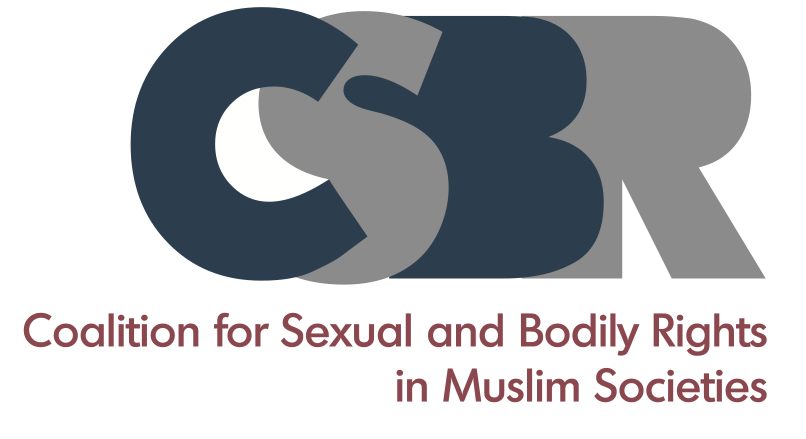




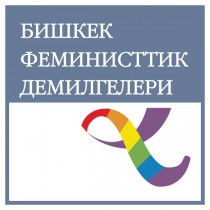


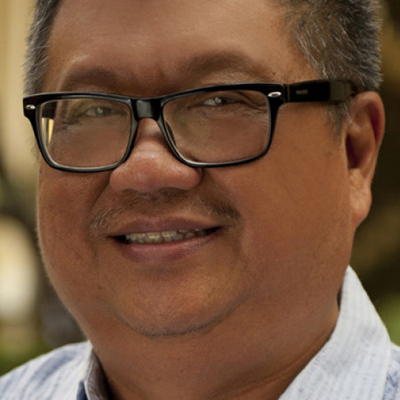



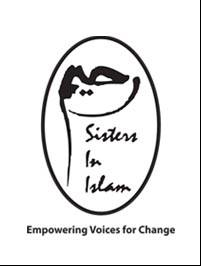 PAS’s ulama council information chief has made a mockery of Islam with his suggestion that marriage would solve a high percentage of underage rape cases in the country, Sisters in Islam (SIS) said today.
PAS’s ulama council information chief has made a mockery of Islam with his suggestion that marriage would solve a high percentage of underage rape cases in the country, Sisters in Islam (SIS) said today.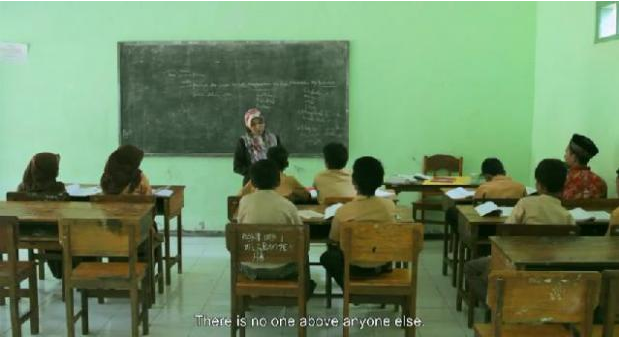






 Nilgün Yıldırım Şener of the Human Resource Development Foundation (İKGV) stated that sexual violence is used as a method of war between the fighting parties in Syria. Giving examples from the cases they encounter in the counseling center for Syrian asylum-seekers set up in Esenler, İstanbul, Şener stressed that 10 out of every 100 asylum-seekers applying to the center have been subjected to sexual violence. She said that among the case files opened at the center during the January-July 2015 period, 89 of the sexual violence victims were women, 37 men, and 9 were LGBTI individuals. Delivering a summary of the sexual and bodily rights violations of women and LGBTI, Şener underlined that housing is the gravest problem along with the very widespread fear of harassment and rape. She also talked about the prevalence of major problems such as the constantly changing practices regarding access to health care services, and the impossibility of access to services such as birth control and abortion.
Nilgün Yıldırım Şener of the Human Resource Development Foundation (İKGV) stated that sexual violence is used as a method of war between the fighting parties in Syria. Giving examples from the cases they encounter in the counseling center for Syrian asylum-seekers set up in Esenler, İstanbul, Şener stressed that 10 out of every 100 asylum-seekers applying to the center have been subjected to sexual violence. She said that among the case files opened at the center during the January-July 2015 period, 89 of the sexual violence victims were women, 37 men, and 9 were LGBTI individuals. Delivering a summary of the sexual and bodily rights violations of women and LGBTI, Şener underlined that housing is the gravest problem along with the very widespread fear of harassment and rape. She also talked about the prevalence of major problems such as the constantly changing practices regarding access to health care services, and the impossibility of access to services such as birth control and abortion.